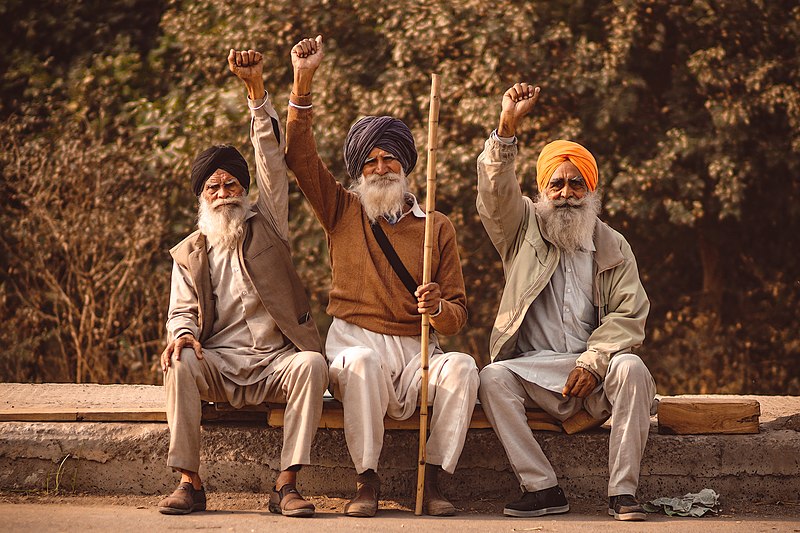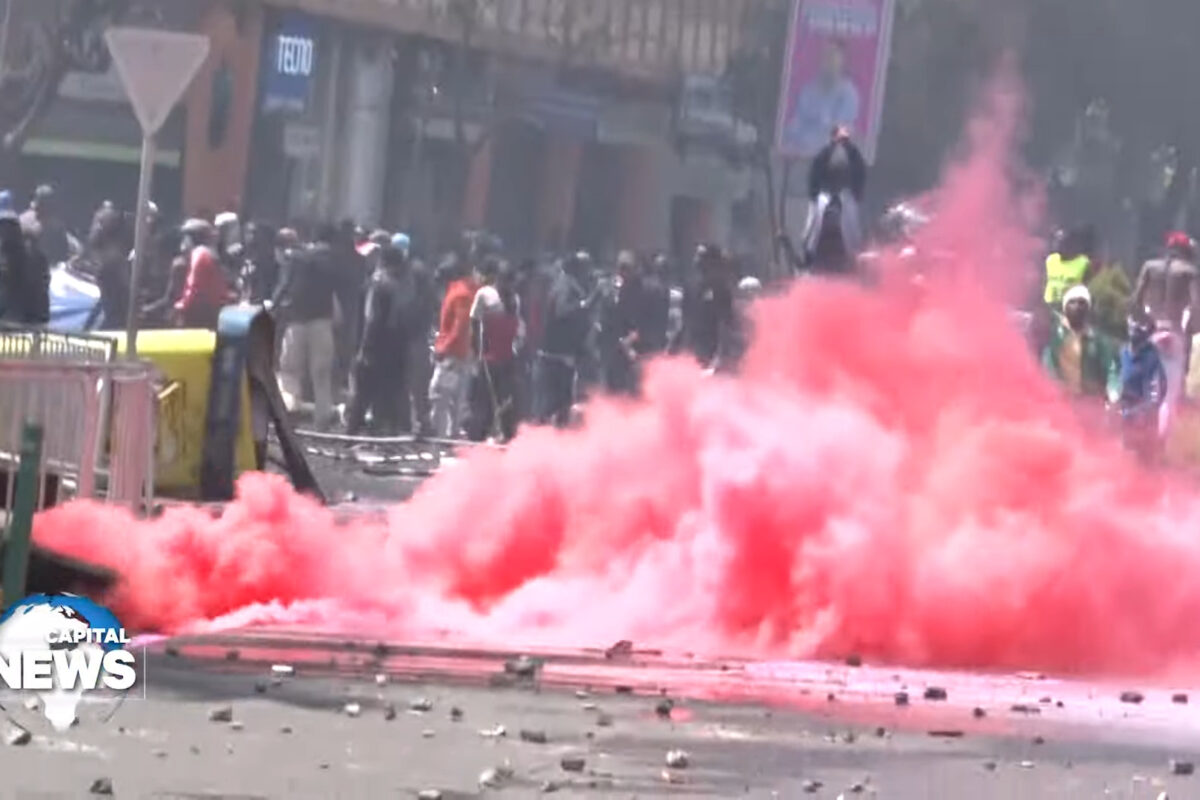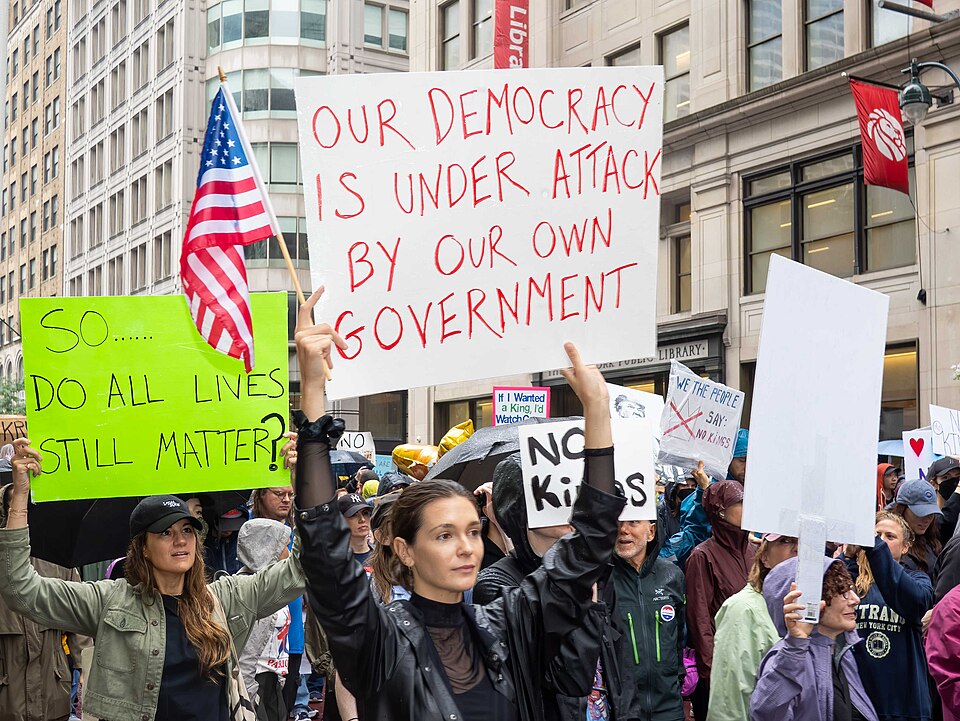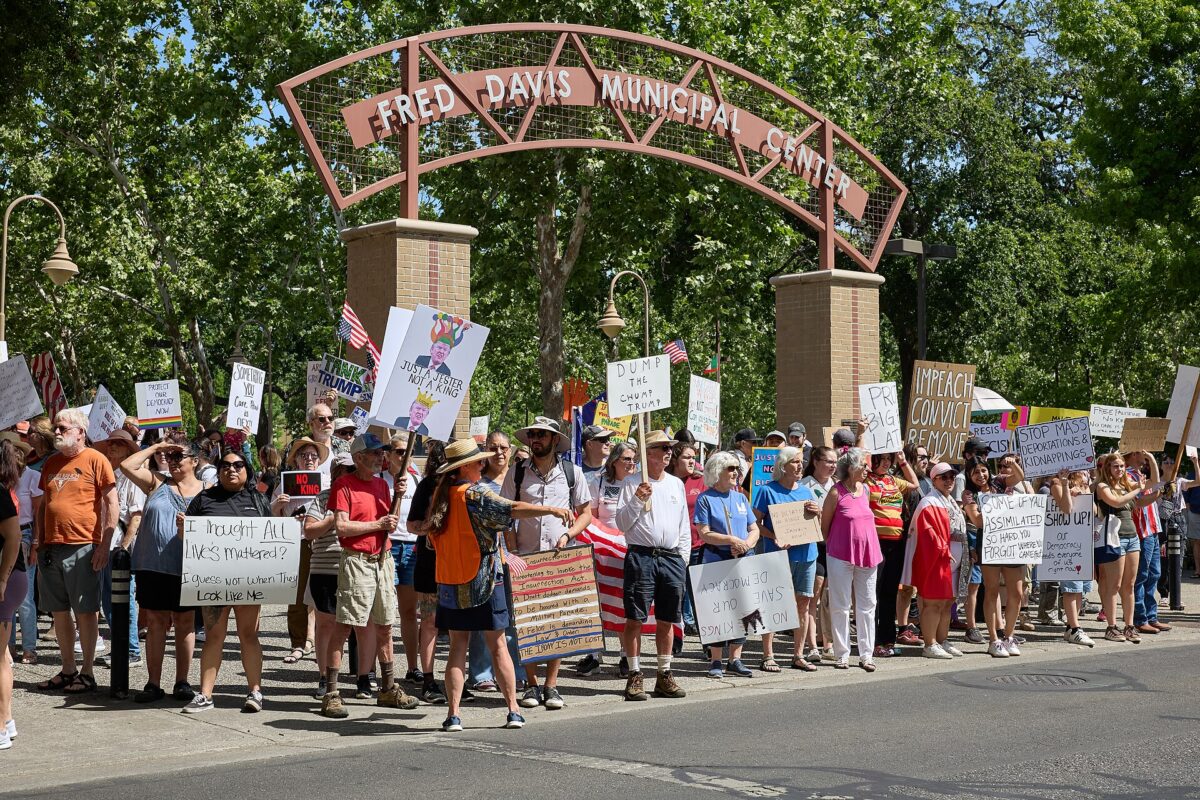On the occasion of the Sikh holy festival of Guru Nanak Jayanti, Prime Minister Narendra Modi made an announcement on national television. In an unprecedented U-turn, he promised that the three farm laws that farmers in India had been protesting against would be repealed. The laws were subsequently repealed in the winter session of the parliament.
Since November 2020, a coalition of farmers’ organizations, collectives, farmworkers’ unions and families and individuals working in the agricultural sectors had been camped on the outskirts of the capital New Delhi. They demanded that the government repeal the three farm laws it pushed through both houses of parliament earlier that year. These laws were passed without consultation with opposition parties, stakeholders, and farmers unions and were criticized for favoring free market and business interests at the cost of farmers’ livelihoods. The laws allowed the market and the private sector to play a greater role in agricultural value creation. They included the Farmers (Empowerment and Protection) Agreement of Price Assurance and Farm Services Act, the Farmers Produce Trade and Commerce (Promotion and Facilitation) Act, and the Essential Commodities (Amendment) Act 2020.
The announcement marked a major victory for the largest democratic protest that we have seen in recent years. Braving the cold, violence from the police, water cannons, and industrial scale barricades at the border, the farmers’ protest finally forced a stubborn government to admit defeat. During this year, the state used a range of tactics to suppress the movement: state-aligned media ran smear campaigns portraying the farmers as terrorists, as separatists, or as wealthy landowners. On social media farmers had to contend with disinformation campaigns and censorship. They faced police repression, physical attacks, intimidation, and had false cases filed against leaders for protesting. Some estimates indicate that during the year-long protest, over 700 farmers lost their lives, even as the government claims it has no record of these deaths.
Agrarian Crisis and Remaining Demands
While the three laws have been repealed, the struggle to rectify the agrarian crisis remains. Neo-liberal policies and practices have hit small and landless farmers hard, causing dwindling incomes and rising debt. “It’s not so much that democracy is working in India as much as the fact that these farmers refuse to acquiesce to the neoliberal takeover of their existences” explains human rights activist Guneet Kaur in an interview.
Even after Modi’s announcement, the farmers announced that they would continue their agitation until their remaining demands are met. These include introducing a law that guarantees Minimum Support Price (MSP), providing compensation, rehabilitation and accountability for the deaths caused by state repression of over 700 protesters, exemption from criminal liability under anti-pollution laws for burning crop stubble, the withdrawal of the Electricity (Amendment) Bill, and withdrawing cases against farmer and union leaders and other persons.
After talks with the government, the Samyukt Kisan Morcha (SKM), the coalition body of various farmers’ groups leading the protests, received a letter on 9 December from the government with proposals to resolve remaining demands. Following this, SKM announced the suspension for the protests at the Delhi border, whilst stating that a meeting will be held in the middle of January to review the situation.
“…an agrarian-centered network has emerged in the course of these protests which transcends state lines, often transcends class and caste divisions…”
“One of the central questions for the movement now is: what happens to the 700 people who have been killed by an indifferent, arrogant, and belligerent state? Some murderers are ministers and their relatives who are roaming around freely”, said Guneet Kaur referring to the incident in Lakhimpur Kheri where four farmers were murdered by being run over by an SUV. Union Minister Ajay Mishra’s son is an accused in the incident.
New Networks and Alliances
During the course of the more than year-long blockade and encampment, the movement has engendered numerous networks, alliances, and relationships, built around a quasi-city. For one, an agrarian-centered network has emerged in the course of these protests which transcends state lines, often transcends class and caste divisions, and is poised to challenge the attempts of the industrialist-friendly central government to accumulate wealth in the agrarian sector. Secondly, the movement has created a range of relationships, networks, and subjectivities. These include women’s groups fighting for land and against sexual violence, to transnational alliances of farmworkers unions which coordinated actions, protests, and strikes in several parts of the nation state, in addition to international funding and support networks through diasporic and solidarity networks.
“The new alliances formed through the farmers’ protest have to be wary of the current decision to repeal these laws as it is by a government that has time again shown its nonchalance for human lives…”
Several hundred songs, music videos, and thousands of self-made reels and videos focused around sustaining a blockade have been created and circulated over the course of the year. Finally, consciousness about the collaboration between the government, its agencies and executive branches, the media, and industrialist-capitalist interests has become a baseline for anyone associated with the movement.
Although the three laws have been repealed, they have been repealed unilaterally and undemocratically much like most of the decisions made by the Modi government. After the repeal of the 3 farm laws, the SKM wrote an open letter criticizing the Prime Minister’s unilateral declaration which was delivered without direct engagement, despite them having had 11 rounds of talks with the government. That the sitting government’s decision to repeal the laws is hinged on the upcoming elections in the states of Uttar Pradesh and Punjab is very obvious from the force with which it is going through the assembly elections despite fears of an oncoming omicron wave. This is much like the campaigning and elections held across several states in India during April-May 2021 that contributed to the deadly second wave in the country. Although the Election Commission’s inaction at this stage may be the one to blame, the autonomy of most institutions in India currently is compromised. The new alliances formed through the farmers’ protest have to be wary of the current decision to repeal these laws as it is by a government that has time again shown its nonchalance for human lives and disregard of public health for the benefit of its survival.
Despite this, the farmers’ movement brought together multiple groups that can continue to mount a serious challenge to market power and vested government interests to expand the struggle to resist the draconian labor laws, policies, and the struggle for achieving dignified working conditions and rights.
This article was written by members of Berlin for India, a collective based in Berlin.




